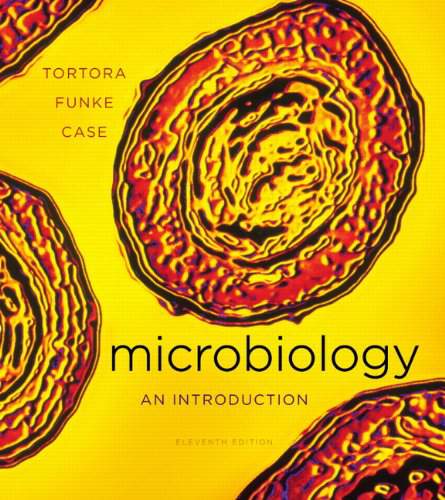Loading...

This is a quick preview of the lesson. For full access, please Log In or Sign up.
For more information, please see full course syllabus of Microbiology
For more information, please see full course syllabus of Microbiology
Microbiology History of Microbiology
Lecture Description
In this lesson, our instructor Catherine Carpenter introduces and discusses the history to Microbiology. She starts with an overview of what microbiology is, then moves on to important discoveries Leeuwenhoek's world, the first smallpox vaccination, Edward Jenner and the cowpox virus, Louis Pasteur and the theory of spontaneous generation, fermentation, pasteurization, vaccination, the germ theory of disease, Koch's postulates, and antibiotics.
Bookmark & Share
Embed
Share this knowledge with your friends!
Copy & Paste this embed code into your website’s HTML
Please ensure that your website editor is in text mode when you paste the code.(In Wordpress, the mode button is on the top right corner.)
×
- - Allow users to view the embedded video in full-size.
Next Lecture
Previous Lecture













































1 answer
Last reply by: Victor Liu
Thu Dec 3, 2020 3:43 AM
Post by Firebird wang on November 2, 2016
Professor, I know that AP Statistics is not your subject, but I just wonder if you are able to watch the two videos which called "Practice Test 2013 AP Statistics" and "Practice Test 2014 AP Statistics" in the AP Statistics content? Both videos showing network error, I dont know why. I already tried in different computers already.
0 answers
Post by Paulette Foster on August 27, 2016
I need all the help I can get I need to get an A in this class. I have a very difficult time taking test /exams, I would welcome any and all help you can render to me. I have till January to get into the nursing program. but I have to pass this class with an A.
Please help me
0 answers
Post by Mohamed E Sowaileh on May 26, 2016
Hello Dr. Catherine,
As you know that translating the Latin/Greek/..etc names of microorganisms into English would a lot more easier to memorize them. Is there any book or something that is for translating the latin, greek roots. Because textbooks don't mention the meaning most of the times.
Thank you very much!
2 answers
Last reply by: Apolonia Gardner
Tue Nov 24, 2015 1:31 PM
Post by Apolonia Gardner on November 24, 2015
Hello,
I am a high school senior about to send off my applications for college. I am stuck on one thing – my intended major. Biology and chemistry have been my favorite courses throughout high school, and I would like to get a college degree that will enable me to perform research with viruses. My lifetime goal is to find a cure for a disease. From your experience, what undergraduate major should I shoot for? Biochemistry? Microbiology? Molecular Biology? Immunology? Chemical Biology? Organic Chemistry? Pharmaceutical Science? Any guidance is appreciated.
1 answer
Sun Aug 16, 2015 10:29 PM
Post by David Steele on August 16, 2015
what other food develop micro-organisms like uncooked rice on in this article.
http://health.howstuffworks.com/food-nutrition/can-eating-cold-rice-kill.htm
0 answers
Post by jwan namiq on May 14, 2015
hello professor,
how the following laboratory parameters can be used for diagnostic purposes?;
a)bilirubin
b)albumin
c)transaminases
thank you
2 answers
Last reply by: jwan namiq
Thu May 14, 2015 5:05 AM
Post by jwan namiq on May 13, 2015
how to define: nrgative feedback, epidemiology of a disease, and malignant tumors. please thanks
1 answer
Mon Nov 10, 2014 3:00 PM
Post by Tom Glow on November 10, 2014
Hello Professor Carpenter,
Could you possibly recommend a text to accompany your course?
Thank you,
AJS
1 answer
Fri Nov 7, 2014 11:11 AM
Post by christine solomon on October 10, 2014
can you explain the fungi